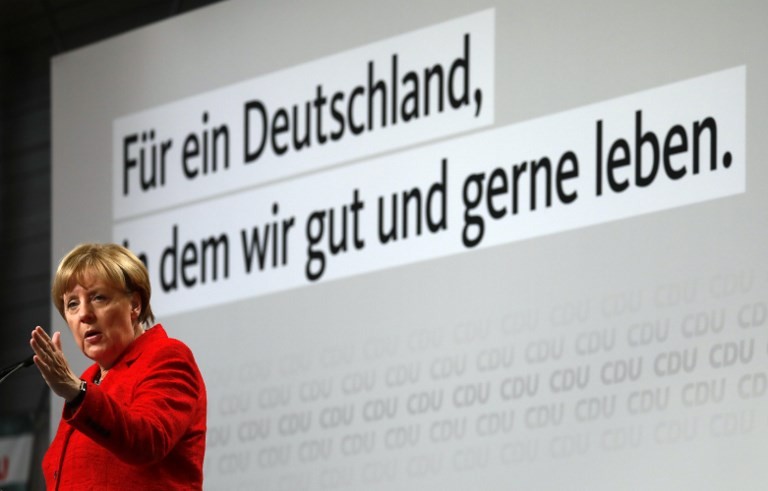Popular Reads
Top Results
Can't find what you're looking for?
View all search resultsPopular Reads
Top Results
Can't find what you're looking for?
View all search resultsMerkel’s attempt to form a new German government collapses
Change text size
Gift Premium Articles
to Anyone
G
erman Chancellor Angela Merkel’s bid to form a new government fell apart, throwing the future of Europe’s longest-serving leader into doubt and potentially pointing the world’s fourth-biggest economy toward new elections.
A month of exploratory coalition talks ended in a dramatic collapse just before midnight Sunday as a dispute over migration policy led the Free Democratic Party, one of the prospective partners, to walk out on a deal.
After 12 years in office that have made her Europe’s anchor of stability in times of crisis, Merkel said she’s staying on as acting chancellor and will consult with Germany’s president later Monday on what comes next. The collapse signals the limit of her pragmatic, non-ideological style of governing and leaves her options for staying in power for another four years dramatically narrowed.
“It’s a day at the very least for a profound examination of Germany’s future,” Merkel, 63, told reporters after the talks ended. “As chancellor, as caretaker chancellor, I will do everything to make sure this country continues to be well governed through the tough weeks ahead.”
Possibilities now include setting up a minority government headed by her Christian Democratic-led bloc or asking President Frank-Walter Steinmeier to order a national election just months after the last one in September. Both scenarios would be uncharted territory for Germany, which has had only eight chancellors in the seven decades since World War II.
The upshot is that Europe’s dominant country remains hamstrung on the global stage, potentially affecting everything from policy toward the European Union, Turkey and Russia to government spending and cuts in carbon emissions.
Merkel already has made it clear that Germany’s euro-area policy is on hold until there’s a new government. The euro fell as much as 0.6 percent, the most in three weeks, to trade at $1.1739 at 7:45 a.m. in Berlin.
“A chance has been missed to go beyond ideological boundaries and agree realistic solutions,” Eric Schweitzer, head of Germany’s DIHK chamber of industry and commerce, told the Deutsche Presse-Agentur newswire. “But the DIHK is confident that all responsible parties will ultimately be capable of finding sensible compromises.”










